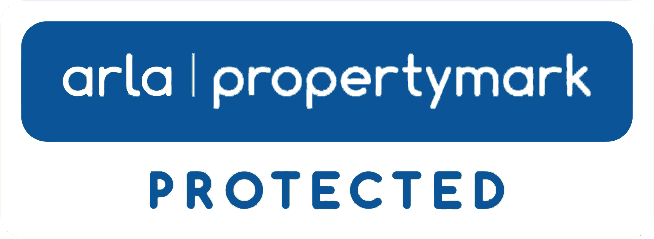
Taking the step to buy a house with a partner is exciting and marks a significant milestone in your relationship. Whether you’re pooling your finances to get on the property ladder or planning for a long-term home together, it’s important to make sure that everything is set up correctly—both legally and financially—to avoid complications down the line.
As more couples choose to live together without marrying or entering a civil partnership, the rise in cohabiting couples purchasing homes together has also increased. But before you dive into homeownership, there are a few key things to consider.
Key Options for Buying a Home with a Partner
When buying a house together, one of the most important decisions you'll make is how to legally structure the ownership. Your conveyancing solicitor will guide you through the process, but here’s a quick breakdown of your options:
Joint Tenancy
- Equal Ownership: Under joint tenancy, you both own the property equally, with no distinct shares. You share both the financial obligations and the benefits of ownership equally.
- Right of Survivorship: If one partner passes away, the property automatically transfers to the other owner, regardless of what’s stated in a will. However, this could have inheritance tax implications if you're not married or in a civil partnership.
- Joint Mortgage: All tenants are treated as one legal entity, meaning both of you must agree on any financial decisions, such as taking out a mortgage.
Tenancy in Common
- Individual Shares: With this option, each partner owns a specific share of the property, which doesn’t have to be equal. For example, you could own 50/50 or 70/30.
- Flexibility in Wills: Unlike joint tenancy, you can leave your share of the property to someone else in your will.
- Joint Mortgage Still Possible: Even with different ownership shares, you can still take out a joint mortgage. However, you’ll both be responsible for the mortgage repayments.
Protecting Your Interests
It’s crucial to ensure that you and your partner have the right agreements in place to avoid misunderstandings. Here are some practical steps:
Deed of Trust
A Deed of Trust is highly recommended if you’re tenants in common and contributing different amounts to the property. This document outlines each partner’s share of the property and what happens if you decide to sell or one partner wants to leave. It also lays out what would happen in the event of a death.
Cohabitation Agreement
If you’re not married, a cohabitation agreement is a smart way to protect your financial interests. This document sets out how your property and finances will be divided if the relationship ends, and can cover details like mortgage contributions and ownership rights.
Consider Your Financial Setup
Before buying a home together, have an open conversation about finances. Here are a few things to think about:
- Mortgage Contributions: Decide how you’ll split the mortgage and other costs, like utilities and maintenance.
- Gifted Deposits: If a family member is contributing to your deposit, a Deed of Trust can help protect this gift.
- Joint Bank Account: Many couples choose to open a joint account to manage household bills. This can make financial management easier, especially when sharing mortgage repayments.
Additional Options for Getting on the Property Ladder
If you’re feeling anxious about buying a house with a partner or think you might struggle financially on your own, there are a few alternatives to explore:
- Lifetime ISA: Boost your deposit savings with the government’s 25% bonus, which could help you get on the property ladder sooner.
- Shared Ownership: You can buy part of a home and pay rent on the remaining share. This could make it more affordable to buy a home on your own.
- Guarantor Mortgage: If affordability is a concern, a parent or family member could act as a guarantor, enabling you to secure a larger mortgage.
Transferring Ownership Between Partners
Already own a home and now want to share ownership with your partner? There are two main ways to do this:
- Transfer of Ownership: This is often done as a gift, meaning no money changes hands, and your partner becomes a joint tenant on the title deeds.
- Transfer of Equity: In this case, your partner buys a share of the property (usually 50%), which might require them to pay Stamp Duty if the share is valued above £125,000.
Legal Protections for Cohabiting Couples
If one partner owns the home and the other moves in, the non-owner typically has no legal claim to the property unless they can prove they’ve contributed financially (such as paying toward the deposit or mortgage). In such cases, legal advice and possibly a cohabitation agreement can help ensure your contributions are protected.
Feeling Anxious About Buying a House Together?
It’s perfectly natural to feel some anxiety about such a big financial commitment. The key to reducing stress is preparation:
- Know What You Can Afford: Speak to a mortgage broker early to understand your options and what you can realistically afford together.
- Understand the Buying Process: Knowledge is power. Make sure you both understand the steps involved in purchasing a property.
- Clear Financial Plans: Decide upfront how you’ll handle costs like the mortgage, bills, and maintenance. Having a plan in place will help avoid disagreements down the line.
Ready to Take the Next Step?
If you’ve decided that buying a house with your partner is the right move, the next step is to speak with a mortgage broker and a solicitor. They can guide you through your options and ensure everything is set up to protect both of you financially and legally.
It’s an exciting time—taking these steps will help ensure that your journey into homeownership together is smooth and worry-free!
Adapted from Home Owners Alliance








